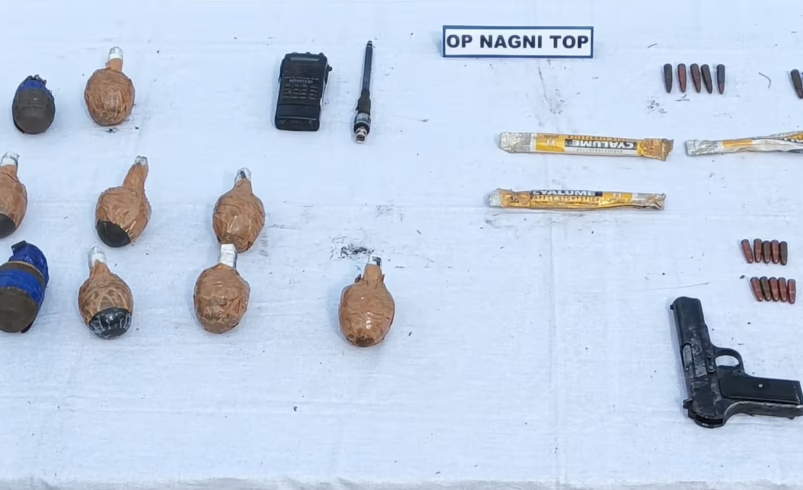Indian Army Uncovers Terrorist Hideout in Kupwara, J&K
- August 5, 2025
- 0

In a decisive move against terrorism, the Indian Army executed Operation Nagni in the Kupwara district of Jammu and Kashmir. This operation was a collaborative effort involving the Indian Army, local police forces, and the Border Security Force (BSF). The primary objective was to dismantle terrorist networks operating in the region, which has been a hotspot for militant activities.
During the operation, security forces successfully uncovered a concealed terrorist hideout. This discovery is significant as it highlights the ongoing threat posed by militant groups in Jammu and Kashmir. The hideout was strategically located to facilitate terrorist activities, making its discovery a crucial step in disrupting these networks.
The operation led to the seizure of a substantial cache of arms, explosives, and ammunition. This includes various types of firearms and explosive devices that were likely intended for use in future attacks. The recovery of these weapons not only prevents potential threats but also serves as evidence of the scale and sophistication of terrorist operations in the area.
The success of Operation Nagni underscores the effectiveness of coordinated security efforts in Jammu and Kashmir. By dismantling this hideout, security forces have dealt a significant blow to terrorist capabilities in the region. This operation is part of a broader strategy to enhance security and stability in Jammu and Kashmir, ensuring the safety of its residents.
The Indian Army’s proactive approach in conducting such operations demonstrates its commitment to eradicating terrorism from the region. Continued vigilance and collaboration among security agencies are essential to maintaining peace and preventing future threats.